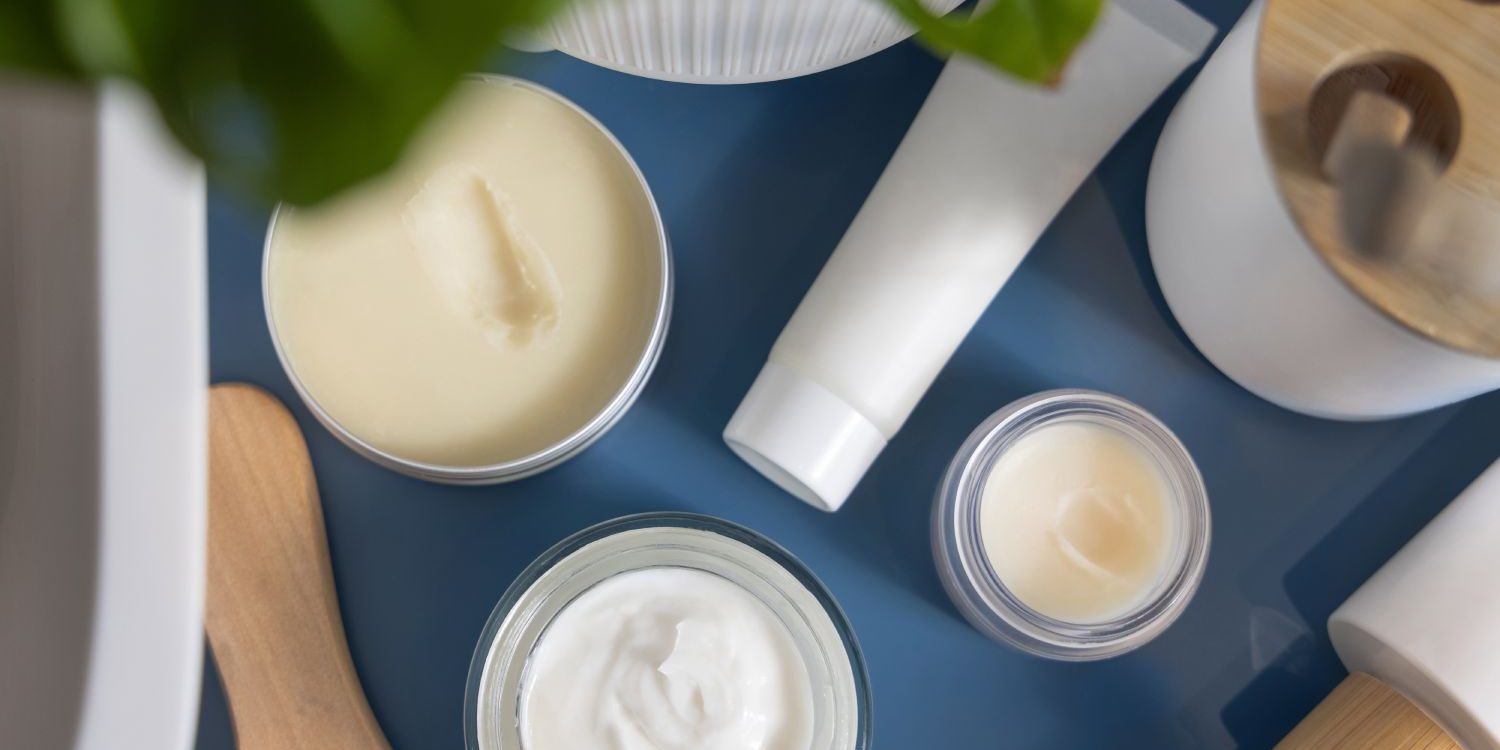 In the booming skin care industry, where countless brands vie for customer attention, successful marketing is key to standing out. Effective marketing strategies must communicate the value of products, build trust, and connect with a loyal customer base. From highlighting product benefits to utilizing social media and influencer partnerships, here are essential strategies for successfully marketing skin care products. Find out here more about marketing skin care products successfully. Get the details from industry leading experts. Why guess? Talk to a business consultant today about your brand or startup.
In the booming skin care industry, where countless brands vie for customer attention, successful marketing is key to standing out. Effective marketing strategies must communicate the value of products, build trust, and connect with a loyal customer base. From highlighting product benefits to utilizing social media and influencer partnerships, here are essential strategies for successfully marketing skin care products. Find out here more about marketing skin care products successfully. Get the details from industry leading experts. Why guess? Talk to a business consultant today about your brand or startup.
Understand Your Target Audience
Marketing begins with a deep understanding of who you’re selling to. The skin care industry serves a wide range of demographics, each with unique needs, preferences, and concerns. By identifying your ideal customer—such as age, skin type, lifestyle, and values—you can tailor messaging and product offerings to address their specific needs.
For example, younger audiences may prefer brands that emphasize natural ingredients, sustainability, and social responsibility. In contrast, older demographics might be drawn to anti-aging products or formulas targeting specific skin concerns. Knowing your target audience’s motivations allows you to create relevant and impactful marketing strategies.
Highlight Key Benefits and Unique Selling Points
With so many options available, customers need clear reasons to choose your products over competitors. Focus on unique selling points (USPs) that differentiate your brand, such as natural ingredients, cruelty-free practices, innovative formulas, or clinically proven results.
Clearly communicate these benefits in product descriptions, advertisements, and packaging. For instance, if your product includes ingredients like hyaluronic acid or vitamin C, highlight how they benefit the skin—hydration, brightening, or anti-aging. Descriptive, benefit-focused language helps potential customers quickly understand why your product is valuable, making them more likely to purchase.
Leverage Social Media for Brand Awareness
Social media platforms, particularly Instagram, TikTok, and Pinterest, are invaluable for promoting skin care products. These platforms allow brands to reach a vast audience, showcase products visually, and engage directly with followers. Regularly posting content, including tutorials, ingredient spotlights, and customer testimonials, helps build brand awareness and maintain customer interest.
Experiment with different formats, such as short-form videos, live Q&A sessions, or before-and-after results. Authentic, relatable content that speaks to your target audience’s skin concerns will resonate more deeply. By using relevant hashtags, collaborating with influencers, and running targeted ads, you can increase your visibility and attract new customers.
Work with Influencers and Brand Ambassadors
Influencers play a significant role in skin care marketing by providing authentic endorsements that build trust. Partnering with influencers who align with your brand values allows you to reach a wider audience and benefit from their established credibility. Influencers can create tutorials, reviews, and testimonials that introduce your products to new customers in a genuine way.
Consider working with a mix of macro and micro-influencers. Macro-influencers have broad reach, while micro-influencers often have highly engaged, niche audiences. For longer-term partnerships, brand ambassadors who truly believe in your products can consistently promote your brand and foster deeper loyalty among their followers.
Build an Educational Content Strategy
Education is a powerful tool in skin care marketing. Many consumers seek guidance on ingredients, product benefits, and skin care routines. By creating content that educates customers, you can position your brand as a trusted authority.
Develop informative blog posts, videos, or social media content that answers common questions, such as “How to Layer Skin Care Products” or “The Benefits of Retinol.” Clear explanations about how and when to use your products help customers make informed decisions. Additionally, an educational approach adds value to your brand, increasing customer loyalty and positioning you as a go-to resource in skin care.
Offer Free Samples or Trial Sizes
Skin care customers often prefer to try products before committing to a full purchase, especially if they have sensitive skin or specific concerns. Offering free samples, trial sizes, or first-time discounts encourages new customers to experience your products firsthand.
Include samples with orders, offer sample packs at a low cost, or partner with other companies to include your samples in subscription boxes. If customers have a positive experience, they’re more likely to return for full-sized purchases and become loyal buyers.
Build a Strong Email Marketing Strategy
Email marketing remains a powerful channel for skin care brands to reach and engage their audience. Create a signup incentive, such as a discount or exclusive content, to build your email list. With a robust list of subscribers, you can send personalized messages, such as product recommendations, skin care tips, and promotions.
Segment your email list based on customer behaviors or preferences to increase engagement. For example, a customer who frequently buys anti-aging products may appreciate emails about similar new products. Sending value-driven emails that include educational content, promotions, or personalized recommendations fosters customer loyalty and increases the likelihood of repeat purchases.
Showcase Customer Testimonials and Reviews
In the skin care industry, customer testimonials and reviews build credibility. When potential customers see real users benefiting from your products, they’re more likely to trust your brand. Encourage satisfied customers to leave reviews and showcase these testimonials on your website, social media, and product pages.
Incorporate before-and-after photos and success stories to highlight how your products address specific skin concerns. Positive reviews improve conversion rates and reinforce that your products are effective and trustworthy, making them a valuable marketing asset.
Use SEO to Drive Organic Traffic
Search engine optimization (SEO) is essential for bringing organic traffic to your website. Optimize product descriptions, blog posts, and landing pages with relevant keywords, such as “hydrating serum for dry skin” or “natural acne treatment.” Keyword research can help you identify what your target audience is searching for, allowing you to create content that answers their questions and addresses their needs.
Creating blog posts or guides around popular topics, such as “Best Skin Care Routines” or “How to Choose the Right Cleanser,” can improve your website’s search engine ranking. Effective SEO brings high-intent visitors to your website, increasing brand visibility and driving conversions.
Develop a Referral Program
Word-of-mouth marketing is powerful in the skin care industry, where recommendations from friends and family carry significant weight. A referral program incentivizes customers to spread the word about your brand by offering rewards, like discounts or free products, for each successful referral.
Promote the referral program through your website, email marketing, and social media channels to increase awareness. By turning your loyal customers into brand advocates, you can reach new audiences who are more likely to trust your brand because it was recommended by someone they know.
Use Retargeting Ads to Convert Browsers into Buyers
Not all visitors to your website will make a purchase on their first visit. Retargeting ads allow you to reconnect with these potential customers by displaying your ads on social media and other websites after they leave. Retargeting keeps your brand top of mind, increasing the chances of conversion when the customer is ready to buy.
Customize retargeting ads based on the visitor’s previous interactions. For example, if someone viewed a specific product but didn’t purchase, show them an ad with that product and a limited-time discount. Personalized retargeting ads encourage customers to return to your site and complete their purchase.
Create Engaging Promotions and Campaigns
Creative, timely promotions attract new customers and encourage existing ones to purchase more. Consider running campaigns around holidays, seasons, or customer appreciation events. Flash sales, bundle discounts, and free shipping offers are also effective for increasing conversions and moving inventory.
Holiday-specific promotions, like Valentine’s Day or Black Friday, provide opportunities to create themed campaigns that align with customers’ purchasing habits. Limited-time offers create urgency and encourage customers to buy, while gift sets and bundles can make your brand more attractive to shoppers.
Prioritize Sustainability and Transparency
Today’s consumers are increasingly mindful of environmental and ethical practices, especially in the skin care industry. Prioritizing sustainability by using eco-friendly packaging, sourcing ethical ingredients, and being transparent about your production practices can boost customer trust and loyalty.
Highlight your brand’s commitment to sustainability on your website, social media, and product packaging. Being transparent about your ingredients and production practices reassures customers who value ethical standards, setting your brand apart and creating a strong, positive image.
Conclusion
Marketing skin care products successfully requires a blend of customer understanding, brand storytelling, and authentic connection. By focusing on educational content, leveraging social proof, and engaging customers on social media, you can build trust and drive sales. With a well-rounded marketing strategy that includes influencers, personalization, and sustainability, your brand can stand out in a competitive market and cultivate loyal, long-term customers. Find out here more about marketing skin care products successfully. Get the details from industry leading experts. Why guess? Talk to a business consultant today about your brand or startup.








